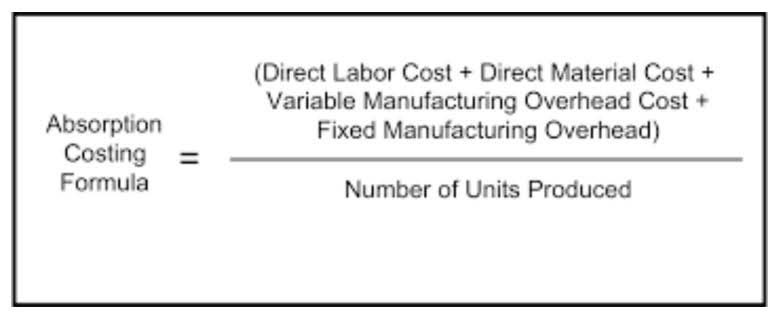Yes, your tolerance to alcohol can diminish fairly quickly after you stop drinking. Relapse after a period of sobriety can be dangerous because your tolerance has gone down. If you drink the same amount you were used to during active addiction, you may experience extreme intoxication or alcohol poisoning. Alcohol can also activate opioid receptors, the same receptors that bind with your body’s natural endorphins and narcotic drugs such as oxycodone and heroin. Opioid receptors dull pain, but they also cause the release of dopamine, a natural chemical tied to reward. All of these chemical activities caused by alcohol can make drinking feel good, which can train your brain to seek out alcohol compulsively, which leads to addiction.
Success Stories from Day Treatment
- Depending on how much alcohol you drink to start with, the amount of time an alcohol weaning schedule takes may vary.
- Someone who drinks heavily for many weeks or months is likely to develop a dependence on alcohol.
- Discover the benefits, support, and triumphs on your journey to seek joy and sobriety.
- This is especially true if you are suffering from an alcohol use disorder.
- The Clinical Institute Withdrawal Assessment for Alcohol, revised (CIWA-Ar), is a widely validated tool used to assess the severity of alcohol withdrawal and the risk for complications.
Alcohol is a central nervous system depressant that leads to an increase in brain neurotransmitters that slow down your brain’s functions, such as gamma-aminobutyric acid (GABA). When you drink heavily over a long period, your brain and body adapt to expect this. Weaning off alcohol can not only dramatically improve the quality of your life, but it can also actually save it.
Or, you may find that quitting all at once is too drastic and decide to start by practicing harm reduction. The goal of tapering down is to make a gradual change while causing less stress on your body, both physically and emotionally. Withdrawal symptoms can vary in severity and depend on many factors, such as drinking history, metabolism, age, medical condition, what other substances or medication you take, and more. Because everyone’s body reacts differently, there’s not a lot of research that proves tapering can decrease the effects of alcohol withdrawal.
Importance of Gradual Reduction
During rehab, you will have the opportunity to participate in group therapy. By seeking support and professional guidance, you are taking proactive steps towards Sober House Rules: A Comprehensive Overview a brighter future free from the grip of alcohol. Remember, you don’t have to face this journey alone, and there are resources available to support you every step of the way. By acknowledging the need for change and understanding the benefits of tapering off, individuals can take the first steps toward achieving a healthier and alcohol-free lifestyle.
Extremely Dangerous Drug Krokodil In America
If you struggle with drinking, the safest way to quit is under a doctor’s care. If you drink heavily, your doctor may recommend quitting with the help of a medical detox center. In medical detox, you receive around-the-clock care from doctors and nurses to help prevent and treat alcohol withdrawal symptoms and their complications.
Can You Taper Off Alcohol Safely At Home?
Alcohol addiction is a progressive disease that can cause you to become dependent on alcohol. While it was once something that you used socially or to have fun, you now need it to feel normal. AUD can be dangerous, especially when you drink heavily in one sitting, risking alcohol poisoning.
- Abstinence, or total and lifelong avoidance of alcohol, is the best treatment for those who have gone through alcohol withdrawal.
- And both of those blames adversely affect the ability of people to get well because they tend to lie or misrepresent what they’re doing.
- And so if we think about modifiable risks of cancer, you know, stopping smoking and quitting drinking are there.
- For this reason, you should always talk to your doctor before attempting to quit drinking.
- It will take time and effort to grow these newfound friendships—but it will be worth it.
For people who moderately consume alcohol, tapering off may be a good option. However, quitting cold turkey or tapering is not advisable for people with an AUD. It’s a good idea to talk with a medical professional before you begin a taper. They can help you decide if it’s the safest way to start your recovery, and they can help you make a taper plan. These can indicate a life threatening condition called delirium tremens. It’s important to seek urgent medical care if you experience any of these symptoms.
Within 5 minutes, you’ll receive an email with these details – free of charge. Relapse is a very normal part of the recovery process, and a majority of those in recovery will relapse at some point. To successfully taper your alcohol use, finding what works best for you is important. By Buddy TBuddy T is a writer and founding member of the Online Al-Anon https://appsychology.com/living-in-a-sober-house/ Outreach Committee with decades of experience writing about alcoholism.
Principles of Effective Day Treatment
If you have trouble controlling how much you drink or experience significant alcohol cravings, you may need professional help instead of trying to taper your alcohol use at home. Along with withdrawal symptoms, it may be even more difficult to cut back or taper your alcohol use if you struggle with an alcohol use disorder (AUD). AUD makes it difficult to control alcohol use — it may seem like the alcohol is controlling you. A taper may not be right for you if you frequently drink more than you intended, try to cut back but cannot or feel that your alcohol use is affecting your life. People with AUD may be unable to quit drinking alcohol on their own or have attempted to quit before and relapsed.
If you properly taper your alcohol use, you’re less likely to experience alcohol withdrawal symptoms. Gradually reducing the amount of alcohol you drink can help give your body the time it needs to adjust to the lack of alcohol. The long and the short of it is–tapering off alcohol with medical support can help you quit drinking. In fact, 30 million people have alcohol use disorder1 in the United States alone.





